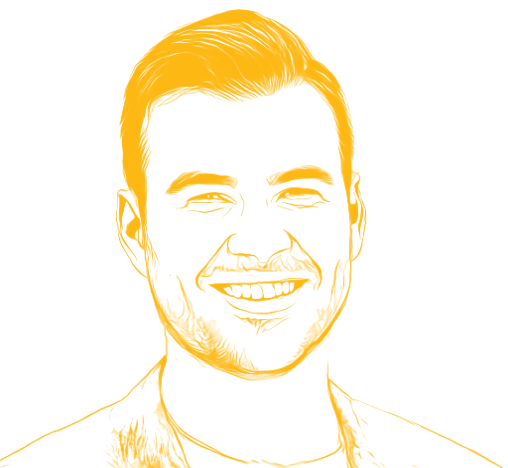Hoteliers Can Drive Profits Through Data-Driven Insights


Synopsis
To maximize profits, Hotels should focus on being proactive with labor, using insights to decrease labor costs and develop new revenue streams, preventing analysis paralysis, and applying insights to drive profits. Actabl CEO Steven Moore writes that utilizing insights effectively is the innovation that will drive the next hospitality revolution, and it is recommended to prioritize learning about and testing new insight-driving solutions, platforms and concepts.
In the past, hoteliers could regularly predict the ebbs and flows of occupancy based on past performance, local market trends, and experienced leadership insights. Group, weekday business transient, and weekend leisure travel were predictable and expected. But the past few years have rocked our industry, and, to succeed going forward, we need to rethink how we forecast and plan. Actionable insights will revolutionize this new chapter of hospitality.
Once people began to travel again (and quickly in the form of revenge travel), it became apparent we could not just jump back to operating the way we used to. This new normal brought a wave of chaos and unknowns - largely centered around labor. Former employees found other career tracks, went back to school, or moved to a different city and new employees were less experienced than those they replaced. The need to implement labor optimization strategies in hotels changed from a “nice-to-have” to a requirement.
While labor shortages in the hospitality industry were not a new problem, they became the trigger point that prevented so many hotels from maximizing revenues and profits. In this new operating climate, these are several suggested focus areas hoteliers can take to mazimize profits.
Be proactive vs. reactive with your labor
This year, proactive hospitality leaders will anticipate the needs and challenges their portfolios may face. They will be prepared to address these needs and challenges ahead of time instead of reacting to crises and issues while they are happening. While it is impossible to anticipate everything, having a comprehensive approach can help leaders plan agile solutions to quickly changing circumstances.
In response to recurring labor challenges, use of contract labor has risen significantly. Through late 2022 and into 2023, contract labor made up over 20% of total labor costs for many destination and heavy group properties in the US. Using significant amounts of contract labor opens up an interesting challenge – managing contract labor costs alongside direct labor costs. Reactively looking at contract labor costs can lead to subjective cost assessments, missed overages, and, ultimately, lower profitability.
To stay proactive, look at availability and costs of both contract labor and overtime together. Then, prioritize usage of them against key sell out dates and make the first labor scheduling action filling shifts that allow all services to function (and all rooms cleaned) for sell out nights.
Use insights to decrease labor costs and develop new revenue streams
Looking forward, optimizing operations will continue to transition from an analog effort to a digitally-supported one. Innovative technologies will allow organizations to manage labor needs with real-time metrics, while also identifying incremental revenue opportunities based on what guests seek out and are interested in purchasing.
We're now experiencing a new phase of travel where blended group, business and leisure travel are pervasive. As of December, CPOR, or costs per occupied room, are 113% their 2019 baselines, while hours of total labor per occupied room still sit below 2019 levels*.To keep CPOR under control, on-property operations teams should leverage insights to make more efficient labor planning decisions across each pay period, not just have piles of unused data or try to “go off a gut feel.”
As guest stay occasions pivot from our traditional business/leisure mix, guest demands are pivoting too. This transition offers an opportunity to use guest data, noted during on-property requests, to uncover new incremental revenue streams. Having tools or processes to aggregate requests, and then translate those requests into actions above-property leaders can take, enables properties to monetize high-demand experiences. For example, adding new spa offerings at off-peak times when group and leisure demand might intersect, or adding a paid meeting option for spaces in hotel lobbies, could be future revenue streams.
Prevent analysis paralysis
Profit-maximizing operations come from transforming an unstructured and often overwhelming flow of data into actionable insights that allow for easier and more effective decision-making. This becomes even more important when we consider the growing number of inexperienced managers in our industry that cannot rely on historical expertise to get the job done. Instead of spending hours, days even, analyzing spreadsheets, during which circumstances and occupancies could have already changed, managers can use real-time software to quickly place employees in the right place at the right time.
Advanced budgeting and performance forecasting tools can also help managers in this new normal. While these tools can equip managers to make effective decisions, it is critical that they also offer clear and actionable insights instead of a deluge of hard-to-interpret data. An example of this would be taking benchmark data that compares minutes-per-clean housekeeping metrics, and then giving managers guidance on specific team members to coach toward improvement.
Alternatively, benchmarking sales director productivity for a chainscale category of hotels in an MSA, or for all properties in a specific submarket, can arm above property leaders with forward looking sales insights that can impact pricing, positioning, and marketing efforts. Understanding this capability maximizes profitability because it not only helps with cost savings but also helps generate revenue at the same time.
Apply insights, drive profits
Utilizing insights effectively IS the innovation that will drive the next hospitality revolution. As we move through 2023, arming both on-property managers and above property leaders with easy-to-follow, actionable insights will unlock greater profits. As you move through your year, my recommendation is to prioritize learning about and testing new insight driving solutions, platforms and concepts.
© CPOR Hotel Effectiveness by Actabl, December 2022